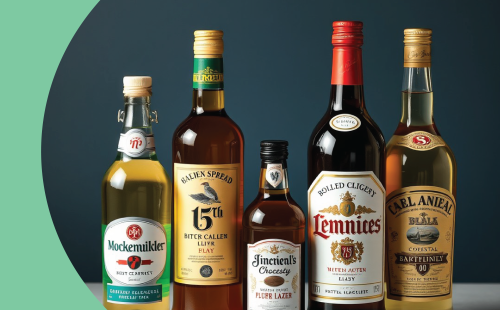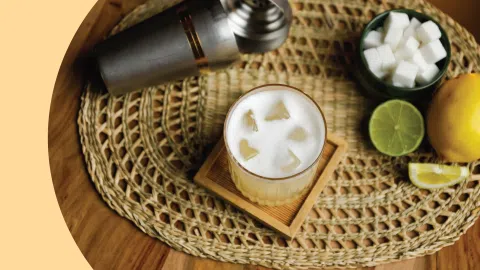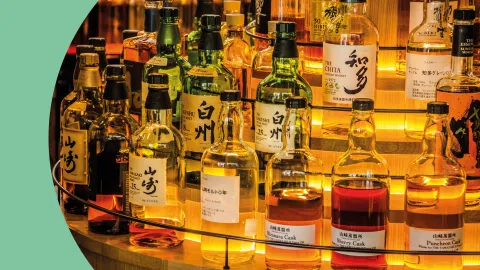Ever feel a bit lost in the liquor aisle, trying to figure out all the different bottle sizes? From small minis to large party-ready bottles, each size has a purpose. Knowing these sizes can help you choose the right bottle for your needs—whether it’s for personal enjoyment or for sharing at a gathering.
In this article, you’ll find a simple guide to liquor bottle sizes, including what each size is called, how much they hold, and when you want to use them.
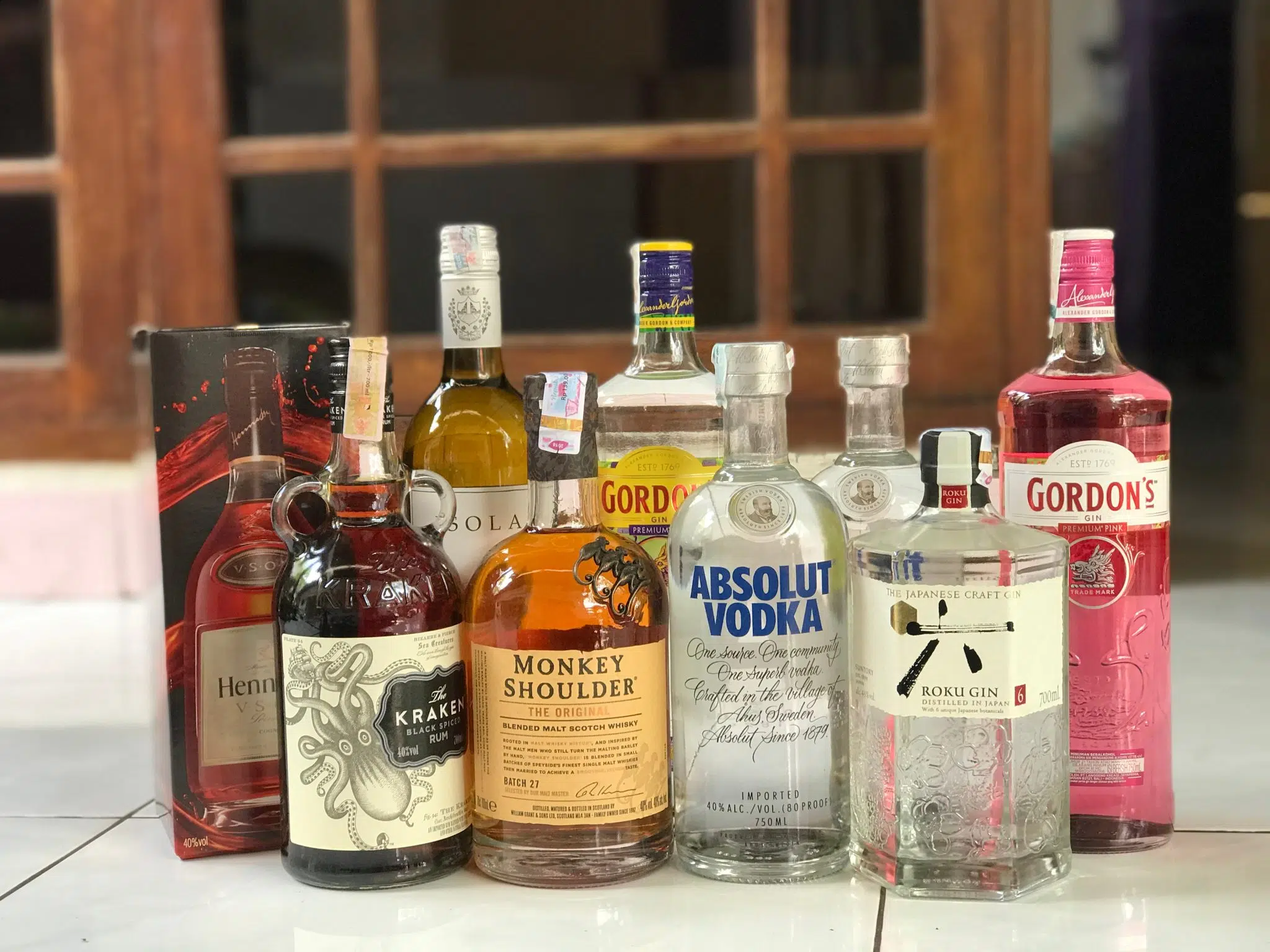
Why Do Bottle Sizes Matter?
First, let’s talk about why bottle sizes even matter. Beyond just how much booze you’re buying, the size of a bottle can impact several things:
- Pricing: Larger bottles often offer better value. For example, a 1-liter bottle can be more cost-effective than a standard 750 ml bottle.
- Storage: Knowing bottle sizes helps with storage planning, especially if you’re a collector. Larger bottles, like magnums, require more space than standard bottles.
- Serving Size: If you’re hosting, understanding bottle sizes helps with estimating servings. Larger bottles mean fewer trips to restock.
With these points in mind, let’s look at the different bottle sizes.
Most Common Liquor Bottle Sizes – Chart
This table shows the typical sizes of liquor bottles and the number of shots, ounces, and milliliters each holds. These figures are essential for professional bartenders and those mixing drinks at home. Keep this overview close so that you never have to calculate again.
| Bottle Size | Ounces (oz) | Milliliters (ml) | Number of Shots | Example of Drink |
| Shot | 1.5 oz | 44.36 ml | 1 | Shot of Tequila |
| Miniature (Mini) | 1.7 oz | 50 ml | 1 | Mini Bottle of Vodka |
| Half Pint | 6.8 oz | 200 ml | 4 | Small Whiskey Bottle |
| Pint | 12.7 oz | 375 ml | 8-9 | Small Bottle of Gin |
| Fifth (Standard Bottle) | 25.4 oz | 750 ml | 16-17 | Bottle of Wine, Rum |
| Liter | 33.8 oz | 1,000 ml | 22 | Large Bottle of Vodka |
| Magnum | 50.7 oz | 1,500 ml | 34 | Magnum of Champagne |
| Jeroboam (Double Magnum) | 101.4 oz | 3,000 ml | 68 | Large Bottle of Wine |
| Rehoboam | 152 oz | 4,500 ml | 101 | Big Bottle of Champagne |
| Methuselah | 203 oz | 6,000 ml | 135 | Huge Champagne Bottle |
| Salmanazar | 304 oz | 9,000 ml | 204 | Extra-Large Champagne |
Liquor Bottle Sizes and Their Names
-
Miniature (Mini) – 50 ml (1.7 oz)
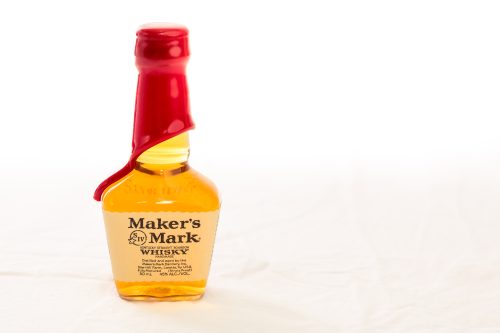
The miniature, or mini, is the smallest bottle size, often used for sampling or single servings. Holding about one shot, it’s ideal for trying a new spirit without buying a larger bottle. Minis are also common as travel-size options, party favors, or in gift sets.
Typical Uses: Sampling new liquors, travel-friendly size, or as party favors.
-
Half Pint – 200 ml (6.8 oz)
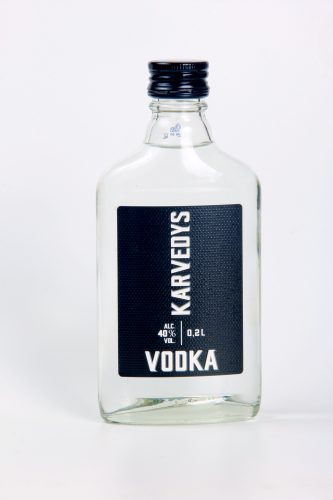
The half pint is compact yet holds more than a mini, containing around 4-5 shots. It’s a convenient choice for those who want a bit more than a sample without committing to a full-size bottle.
Typical Uses: Handy for road trips, small gatherings, or personal enjoyment.
-
Pint – 375 ml (12.7 oz)
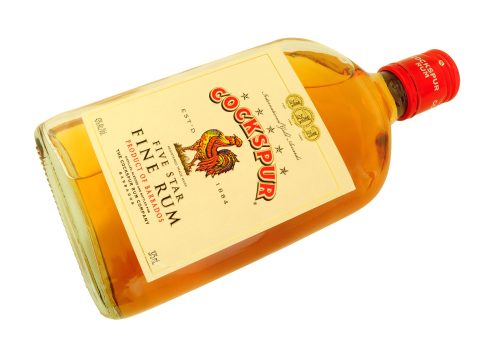
A pint bottle is half the size of a standard bottle, holding about 8-9 shots. It’s a practical choice for sampling a new spirit or for when you only need enough for a smaller gathering.
Typical Uses: Great for gifting or when a full bottle feels like too much.
-
Fifth (Standard Bottle) – 750 ml (25.4 oz)
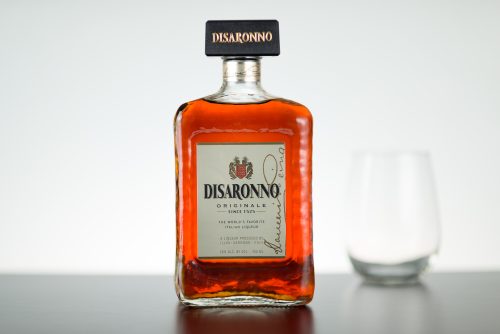
A fifth is a standard bottle, holding about 17 shots of alcohol. It’s perfect for home bars and gatherings, whether you’re using vodka for cocktails or whiskey for sipping.
Typical Uses: Great for stocking up or sharing with friends, offering just the right amount for a party without too many leftovers.
-
Liter – 1 L (33.8 oz)
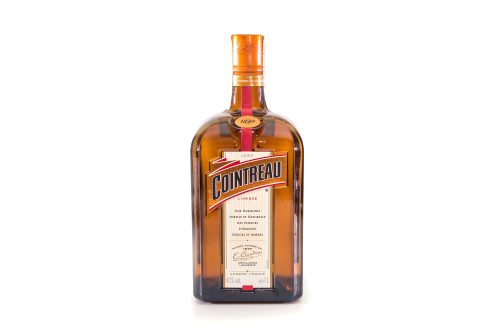
A liter bottle is a step up from the standard size, holding around 22 shots. It’s common in international spirits or larger options for bars and is ideal for when you need a bit more of a specific spirit.
Typical Uses: Perfect for larger gatherings or bulk purchases, offering a better price per shot compared to the 750 ml bottle.
-
Magnum – 1.5 L (50.7 oz)
Now we’re getting into the party-size bottles! The magnum is double the size of a standard bottle, holding around 34 shots of alcohol. Magnums are often used for special occasions or large gatherings and are commonly found in wine or champagne, though you’ll also see them for spirits.
- Common uses: Perfect for weddings, celebrations, or impressing guests at large parties.
-
Jeroboam (Double Magnum) – 3 L (101.4 oz)
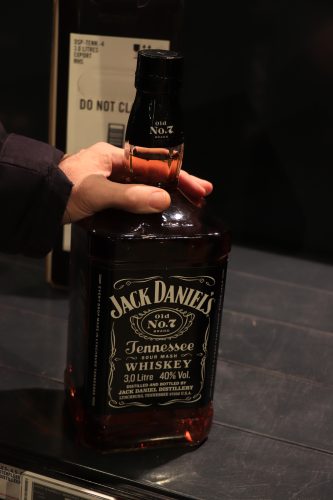
Holding four times the amount of a standard bottle, a Jeroboam (also called a Double Magnum) contains about 68 shots of alcohol. It’s often seen in champagne or wine but can occasionally be found in spirits as well. This size is typically reserved for major celebrations where one bottle can serve an entire party.
- Common uses: Typically found in high-end wine or champagne for large gatherings or parties.
-
Rehoboam – 4.5 L (152 oz)
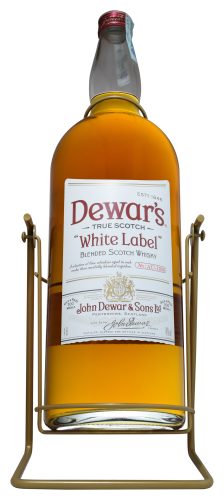
Named after a biblical king, the Rehoboam holds six times the volume of a standard 750 ml bottle. You’ll mostly find this size in wine and champagne, particularly at prestigious events.
- Common uses: Ideal for formal or ceremonial occasions where a dramatic presentation is key.
-
Methuselah – 6 L (203 oz)
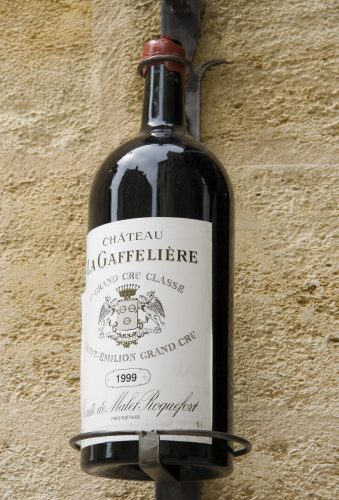
Named after the biblical figure who lived the longest, this bottle is eight times the size of a standard bottle. It’s often found in wine or champagne and is an impressive centerpiece for any major event.
- Common uses: Best for grand occasions like weddings, large banquets, or extravagant parties.
-
Salmanazar – 9 L (304 oz)
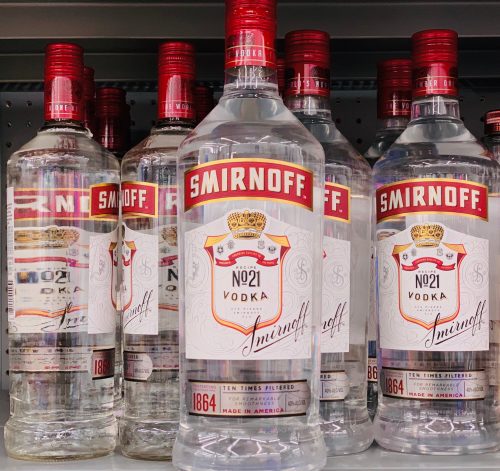
This bottle holds 12 times the amount of a regular bottle, making it an absolute showstopper. Primarily used for champagne or fine wine, it’s rarely found for spirits unless you’re at a very exclusive event.
- Common uses: Massive celebrations, galas, or events where you need to serve a large crowd.
-
Balthazar – 12 L (406 oz)
The Balthazar holds 16 times the amount of a regular 750 ml bottle and is named after one of the Three Wise Men. It’s most commonly seen in champagne but occasionally appears in high-end spirits as part of limited editions.
- Common uses: Grand-scale events, particularly those with luxurious vibes, such as New Year’s Eve parties.
-
Nebuchadnezzar – 15 L (507 oz)
Holding a staggering 20 standard bottles, the Nebuchadnezzar is typically reserved for once-in-a-lifetime celebrations or major events. You’ll usually see this size in champagne, though some winemakers and spirit producers also use it for dramatic flair.
- Common uses: The centerpiece at extravagant celebrations like weddings or VIP events.
Now that we’ve covered the basics, let’s move into some of the even more extraordinary sizes. These massive bottles are generally used for champagne or wine but can occasionally be found in spirits, especially for promotional or collector’s purposes.
-
Solomon (Goliath) – 18 L (609 oz)
This size is often used for champagne and holds 24 times the amount of a standard bottle. It’s named after King Solomon, adding a sense of grandeur to any event it graces.
- Common uses: Extravagant celebrations, ceremonies, or as a luxury display piece.
-
Sovereign – 26.25 L (888 oz)
The Sovereign is rare but often used for champagne at royal or ultra-luxurious events. It holds an impressive 35 standard bottles.
- Common uses: High-end events, often for royalty or heads of state.
-
Primat (Goliath) – 27 L (914 oz)
This enormous bottle size is sometimes referred to as Goliath and is found mostly in champagne. It holds 36 times the volume of a regular bottle.
- Common uses: Iconic celebrations, galas, and exclusive events where luxury and spectacle are front and center.
-
Melchizedek (Midas) – 30 L (1,014 oz)
The granddaddy of all liquor bottles, the Melchizedek (also known as Midas) holds 40 standard bottles worth of alcohol. This behemoth is often seen as a marketing spectacle for luxury brands.
- Common uses: Reserved for the most opulent and high-profile events, usually involving champagne.
What Are Bottle Sizes Named After?
Many of the larger liquor bottle sizes, particularly those used for wine and champagne, are named after biblical kings and historical figures. This tradition likely began as a way to associate these grandiose bottles with prestige, luxury, and celebration. For example, the Jeroboam, a 3-liter bottle, is named after the first king of the northern Kingdom of Israel. The Methuselah, which holds 6 liters, is named after the biblical figure said to have lived the longest. Then there’s the Nebuchadnezzar, a 15-liter behemoth, named after the famous king of Babylon. Other names, like Rehoboam, Salmanazar, and Balthazar, also have royal or historical significance, symbolizing the grandeur and opulence associated with these large-format bottles.
Regional Differences in Bottle Sizes
While the standard sizes mentioned above apply to most liquors globally, regional variations in bottle sizing can be confusing, especially when traveling or importing spirits.
For example, the US typically uses imperial measurements, with the fifth (750 ml) being the most common bottle size. In Europe, however, you may find slightly larger or smaller bottle sizes due to the metric system being used more strictly.
- US vs. Europe: The 750 ml fifth is standard in the US, but in Europe, 700 ml bottles are the default size for spirits.
- UK “Nip” Sizes: In the UK, you might come across smaller bottles called “nips,” which are about 50 ml, perfect for single servings.
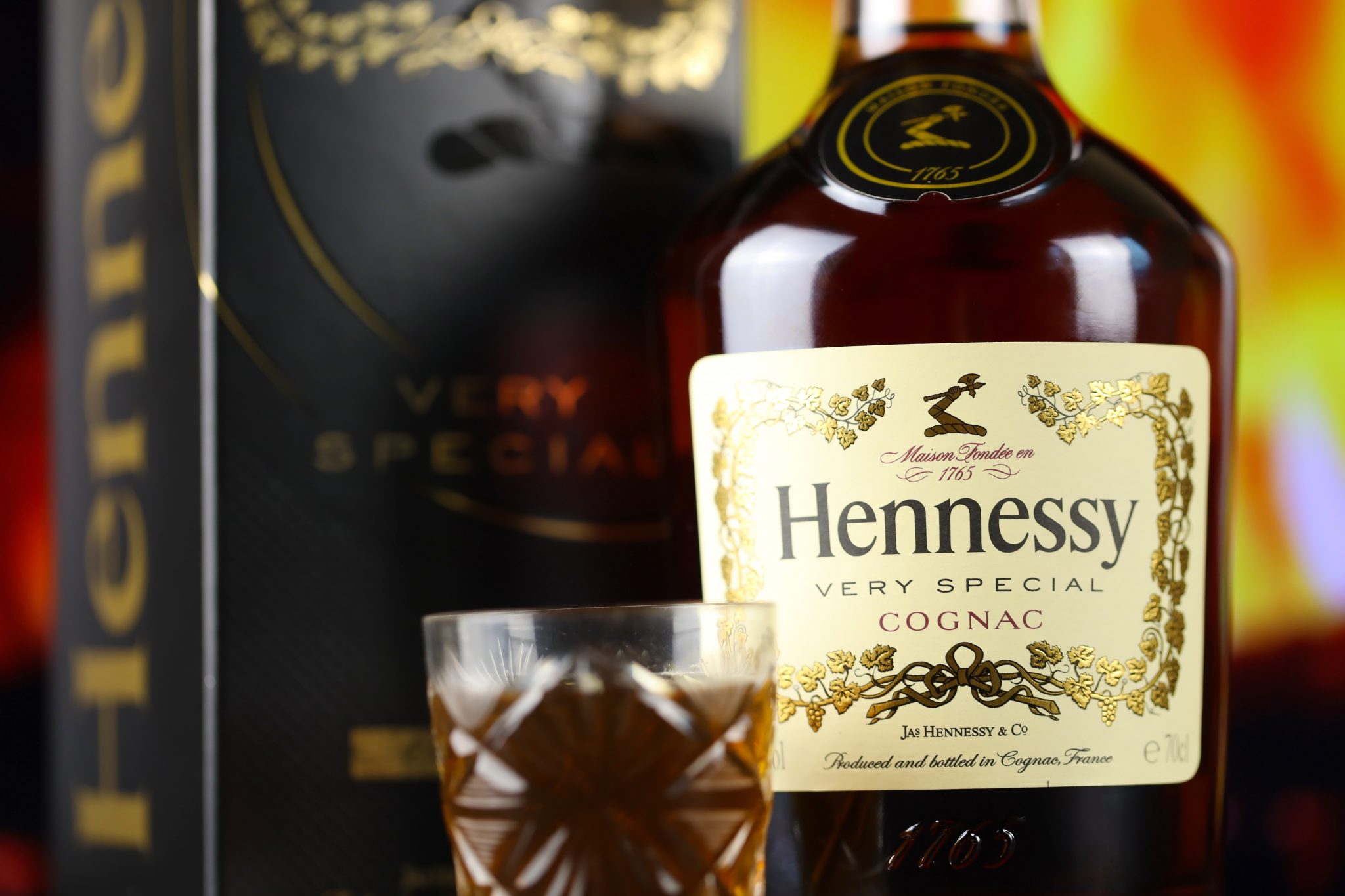
Converting Bottle Sizes
Converting between ml and oz is crucial for those who mix drinks professionally or frequently to ensure you’re serving the correct amount.
- 1 oz = 29.57 ml
- 750 ml = 25.36 oz
- 1 liter = 33.8 oz
Related: How Many Ounces of Liquor Are in a Shot Glass?
Biggest bottle of Liquor in the World
The world’s largest known bottle of whisky is called “The Intrepid.” This gigantic bottle contains 311 liters (68.41 US gallons) of 32-year-old Macallan single malt, distilled in 1989. The Intrepid stands over 1.8 meters tall and was presented at Duncan Taylor Scotch Whisky in Huntly, Scotland. This record-breaking bottle was sold at auction in Edinburgh for £1.1 million. Daniel Monk founded the project behind this massive bottle, which was a combined effort of Fah Mai Holdings Group Inc. & Rosewin Holdings PLC.
For more details on large-format bottles and the story behind The Intrepid, you can explore the Vinovest and Guinness World Records websites.
